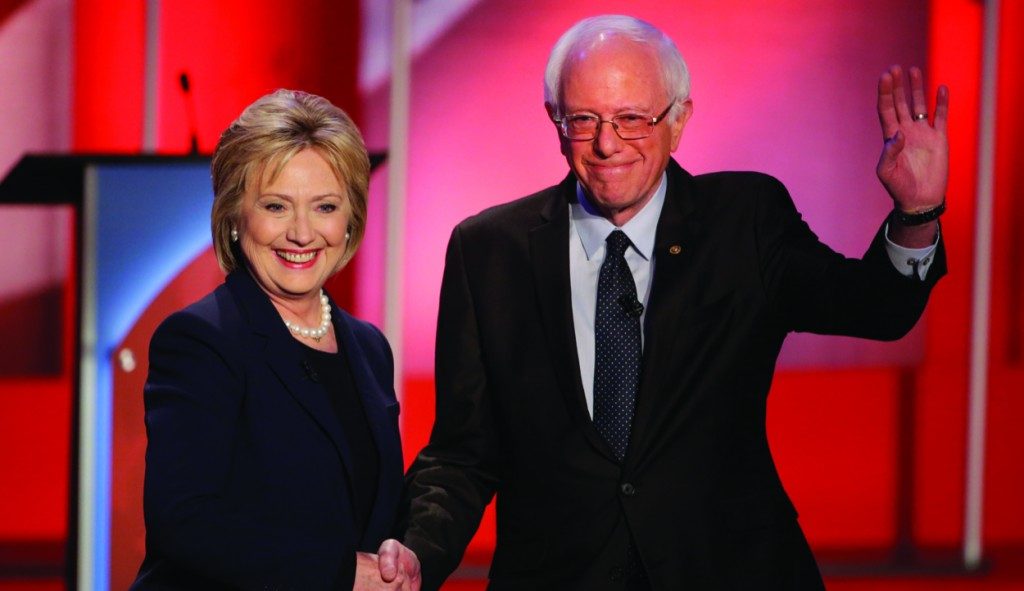
How in-fighting ultimately fucks us over
By Rebecca Peterson, Humour Editor
A few months ago, back in the heady days of post-election fear and dismay—long before we all had to figure out some way to explain to our parents what “golden showers” are without bringing up awkward questions of how we know what “golden showers” are—there was the Hamilton controversy.
You’ve likely heard the details over and over, so I won’t go into it too much; the cast of Hamilton, led by Brandon Victor Dixon, gave an impassioned speech to Mike Pence, essentially asking that he not be a massive dick of a Vice President. This was seen as a hateful and incendiary move by some (Donald Trump), and a brave and moving show of peaceful protest by others. However, a lesser-known controversy followed on the heels of this one. Tweets by Brandon Victor Dixon referring to women as “ho’s” who needed to “step up their game” were unearthed, as well as a few other less-than-pleasant tweets about women.
I’m not here to defend those tweets, because I do believe they’re misogynistic, hands-down. They were also from three to four years ago, and made for a convenient distraction from Dixon’s message to Pence—which was, by the way, made on behalf of the cast as a whole, not just Dixon himself.
One thing I truly appreciate about the left and center-left politics is that, in many circles, there is a constant drive to improve. We want to improve our understanding of social issues, how we treat one another, and how we treat those who are marginalized and who are sometimes left out of the discussion. Intersectional feminism teaches a holistic way of viewing issues of social justice with recognition of the concept of privilege, and how it sometimes makes us blind to the oppression of others.
However, I do believe that sometimes the search for ideological parity becomes a demand for ideological purity, and that is where we run into trouble.
We of the left, myself included, all have very different ideas of what an ideal society should look like, and that’s a good thing. If these were normal times, keeping a healthy debate bouncing between us—and hell, even over that centre line to the right and back again—would enrich us as a society. The problem with a divided left currently is that these are not normal times, and at the risk of sounding like a catastrophist, we can’t afford to throw anyone who has even a few ounces of morality left in them under the bus.
Look at the last decade of Canadian politics, for example. Despite many Canadians disagreeing with Stephen Harper’s politics—his silencing of climate change scientists, his problematic senate appointments and multiple election scandals—the Harper government remained in power long past its best-before date. Part of the reason why this occurred was because the left and centre-left vote was split between several parties: The Liberals, the NDP, and (because several leftists seem to conflate colours with political alignments and don’t actually research party politics) the Green Party. Canadians on the right side of the political spectrum only supported one party, and that was the party that won.
We saw this happen again on a much more disastrous scale in the US election. Many leftists were understandably hesitant to support Hillary Clinton due to her worryingly close ties to Wall Street, as well as some less than savoury acts and comments towards marginalized people over the course of her political career. However, America was presented with a choice between a problematic but qualified politician, and an actively racist demagogue with no political experience whatsoever and Putin’s hand practically up his ass in a horrifying show of political ventriloquism. This was still treated like a normal election, as if Clinton’s sins could even-handedly weigh against Trump’s active war-mongering. The left did not show up for Clinton, and we now have a man with the intelligence of a third-grader with his tiny hand on that big red Armageddon button.
I still believe it’s important to call out bad behaviour, and to keep the conversation rolling on how best to achieve a better, less marginalizing society. However, we have to approach the next few years very carefully, and very strategically. If the goal is to weaken the alt-right, then we might have to support those who—while far from perfect—are at least not actively causing harm, and who might stand a chance of wresting power back from people who support the physical abuse and torture of LGBTQ+ people, who debate over whether Jewish people are human or not, who don’t believe women should have control over their own bodies and reproductive choices, and who think that simply stating that Black Lives Matter is an act of terrorism.


